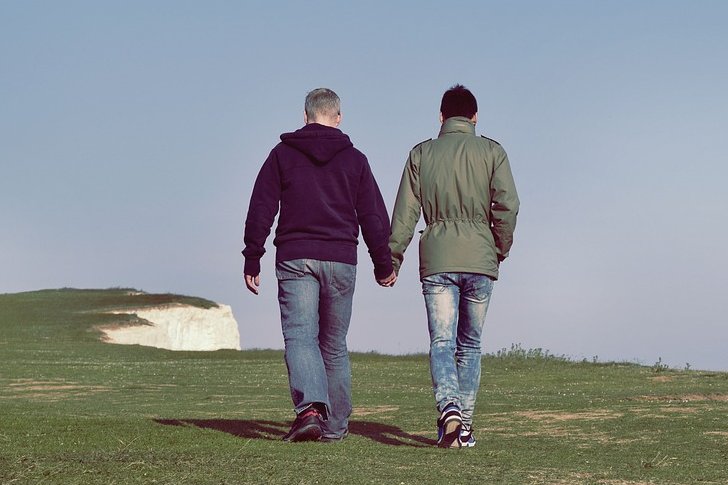A brand new examine means that dropping a partner to COVID-19 could also be worse for psychological well being than different causes of dying. Photograph by Pexels/Pixabay
July 26 (UPI) — A brand new examine means that dropping a partner to COVID-19 could also be worse for psychological well being than dying from different causes.
This analysis highlights that the thousands and thousands of COVID-19 widows and widowers face “excessive psychological well being dangers,” the researchers mentioned in a information launch, “eclipsing these skilled by surviving spouses pre-pandemic” and heightening issues in regards to the pandemic’s lasting affect on well being.
And this massive group of bereaved older adults stays in want of medical healthcare assist, suggests the Nationwide Institutes of Well being-funded study by Penn State researchers revealed Tuesday within the Journals of Gerontology-Collection B.
The analysis findings underscore the continuing well being dangers posed by the COVID-19 pandemic, even to those that haven’t been contaminated by the virus, Ashton Verdery, a examine co-author, mentioned within the launch.
“These dangers apply to thousands and thousands of individuals throughout the globe who’ve misplaced their wives, husbands and companions,” mentioned Verdery, affiliate professor of sociology and demography at Penn State.
The evaluation targeted on assessing whether or not an individual whose partner or associate died from COVID-19 confronted distinctive psychological well being dangers — together with self-reported despair, loneliness, and hassle sleeping — in contrast with pre-pandemic current spousal deaths.
To perform this, the researchers pooled survey knowledge from 27 international locations, evaluating a pre-pandemic interval, starting from October 2019 to March 2020, to an early pandemic interval from June by means of August 2020.
Adults in each samples have been comparable by way of age, beginning at 50 and older; gender, employment standing; and family dimension.
In line with the examine’s findings, robust associations existed between current spousal dying and poor psychological well being each earlier than and throughout the pandemic.
However the scientists’ evaluation indicated that folks whose spouses died of COVID-19 had larger threat of self-reported despair and loneliness — however not hassle sleeping — than what could be anticipated primarily based on pre-pandemic associations.
Researchers mentioned it has been debated whether or not oblique well being impacts of COVID-19, resembling bereavement, are worse than comparable experiences in pre-pandemic instances.
However. they mentioned “there are causes to suspect as a lot,” since earlier analysis signifies this could be the case resulting from threat components, resembling a sudden or traumatic dying, irritating circumstances surrounding dying and place of dying, and lack of interpersonal assist and coping assets following dying.
The scientists additionally cited earlier research that indicated individuals whose family members die “dangerous deaths” — marked by bodily discomfort, problem respiratory, social isolation, psychological misery, lack of preparation, being handled with out respect or dignity, and receiving undesirable medical interventions — are inclined to report higher psychological misery than these whose family members die in several circumstances.
Throughout the early levels of the COVID-19 disaster, a lot of this held true, they famous. The bereaved have been disadvantaged of ultimate moments with family members who have been dying of the coronavirus or different causes, in addition to in-person funeral and memorial rituals due to the general public well being emergency.
Furthermore, the researchers mentioned, the challenges have been seemingly exacerbated by different stressors related to the pandemic, together with social isolation, high-stress dwelling conditions, elevated threat of economic issues, and decrease charges of utilizing psychological well being providers, as outlined in earlier research.
But, this all this had been conjecture, with the “COVID-19 differential affect” speculation untested in population-based knowledge till this examine was completed, in response to the scientists.
Testing the speculation was difficult due to two components: the dearth of strong population-based knowledge from the pandemic, and the truth that out there knowledge on COVID-19 bereavement are sometimes primarily based on completely different surveys with completely different sampling parameters.
However the researchers mentioned they overcame the challenges by utilizing newly out there knowledge from two iterations of the Survey of Health, Aging, and Retirement, or SHARE, survey in Europe.
They mentioned their findings lend assist to the concept “dangerous deaths” are particularly dangerous for older adults’ psychological well being, even outdoors of pandemic contexts.
And, the scientists mentioned, whereas their examine’s focus was restricted to spousal loss, a a lot bigger share of the inhabitants has skilled different household and outside-of-family losses from COVID-19 prone to have a powerful unfavorable affect on their psychological well being.
They anticipate future analysis on whether or not different kinds of bereavement throughout the pandemic, resembling kids dropping their dad and mom, carry comparable further dangers.







